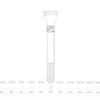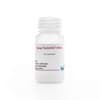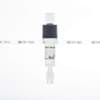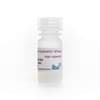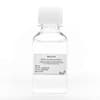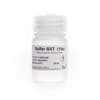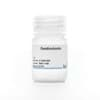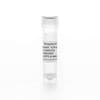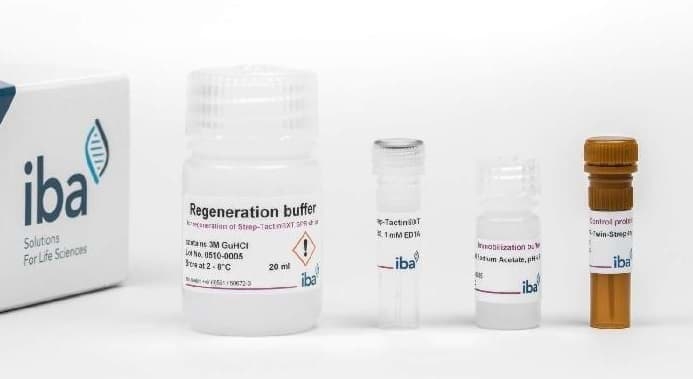
Universal protein isolation method for cells and exosomes
Successful protein purification should be 'a piece of cake'
At Westburg we offer the Strep-tag® technology, which gives you a universal tool for
isolating proteins, cells, and exosomes.This next level purification system will make an end to protein purification frustrations.
In summary
- The importance of protein purification
- The challenges of protein purification
- Biotin blocking
- Our solutions
Protein purification
What is the importance of (target) protein purification?
A protein is one of the most important biological macromolecules. It plays a vital role in cell growth, development, movement, heredity, reproduction, and other life activities.
Protein purification is, in turn, one of the leading applications in biotechnology. Targeted protein purification is a crucial step in enabling protein function analysis without the interference of other molecules.
A target protein's affinity is a unique property that can efficiently isolate it from other molecules. Other molecular properties, such as the molecular mass, the charge, or the hydrophobicity, can also be used to isolate the target protein; however, these properties can be conflicting between different proteins.

Protein purification
Challenges of protein purification
Efficient purification of large proteins can be challenging. If the agarose has a high density, it is more difficult for large proteins to enter it.
As a result, large target proteins are insufficiently immobilized and remain in the flow-through. The solution to this problem is highly specific Strep-Tactin®XT combined with low-concentrated agarose, Strep-Tactin®XT 4Flow®.
Strep-Tactin®XT 4Flow® is the resin to start with due to its particular applicability even for low-abundance or challenging proteins.
In addition, the high-capacity variant of Strep-Tactin®XT 4Flow® can further increase protein yield.
Challenges with biotin
Biotin blocking
Cell culture supernatants often contain high amounts of free biotin. These become unproblematic when working with Strep-Tactin®XT resins since biotin does neither bind irreversibly to this ligand nor reduces the binding capacity.
However, this is the case for the application of resins coupled to Strep-Tactin®. Free biotin can bind to the engineered biotin-binding pocket of Strep-Tactin® and prevents the binding of Strep-tag®II or Twin-Strep-tag® proteins. Therefore, biotin must be removed or masked prior to protein purification. The cell internal content of free biotin is relatively low and not a threat to significant inactivation of the Strep-Tactin® resin in protein purification. Besides free biotin, cell lysates also contain small amounts of biotinylated proteins. Due to their low abundance, these proteins do not typically influence the purification results with Strep-Tactin® or Strep-Tactin®XT.
However, impurities should be prevented when it comes to analytic applications with high sensitivity. The simplest way to eliminate biotin or biotinylated proteins prior to protein purification is irreversibly masking the biotin by adding avidin.
Avidin, extracted from egg white, is a tetrameric biotin-binding protein (KD for biotin > 10-14) that does not bind to Strep-tag®II or Twin-Strep-tag®. 1 U of avidin is able to block 1 µg of biotin.

Our Products
Our advice in prevention
At Westburg we offer a wide range of products necessary for protein purification and biotin blocking. Want to find out the unprecedented abilities of the Strep-Tactin®XT 4Flow® purification explore our product range today.
Gravity flow Strep-Tactin XT 4Flow (5 ml)
Strep-Tactin XT 4Flow (50 ml)
Strep-Tactin XT 4Flow cartridge (1 ml)
Strep-Tactin XT 4Flow high capacity (4 ml)
BioLock Biotin Blocking Solution 250 ml
BXT Strep-TactinXT Elution Buffer 10xConc, 25 ml
D-Desthiobiotin 1g
Streptavidin,10 mg
Our news related to Protein Purification

Get you free tickets. Let's meet at the WoTS
Will you be there from September 24 to 27 at the World of Industry, Technology & Science 2024?

Trade-in summer promotion
20% discount on a new thermocycler, cell counter or nanophotometer
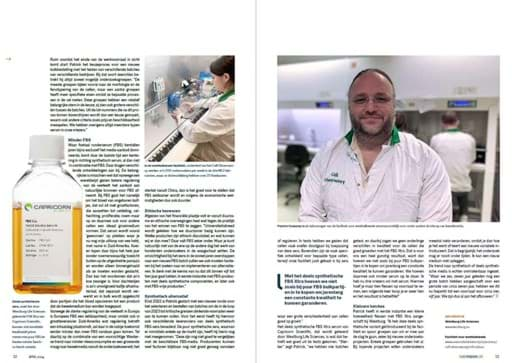
Leiden Cell Observatory switches to partly synthetic seru...
April 2024 - This has several advantages. Lab manager Patrick Voskamp shares his experience in this article
Key benefits
• Higher affinity and protein yield even for large proteins
• Higher capacity for large proteins
• Broad pH stability (pH 4-10)
• Higher pressure stability compared to Strep-Tactin® Sepharose
• Cost efficiencies
Look at all the products for successful protein purification.
Curious? Take a look at the references
Our news related to Protein Purification

Get you free tickets. Let's meet at the WoTS
Will you be there from September 24 to 27 at the World of Industry, Technology & Science 2024?

Trade-in summer promotion
20% discount on a new thermocycler, cell counter or nanophotometer

Leiden Cell Observatory switches to partly synthetic seru...
April 2024 - This has several advantages. Lab manager Patrick Voskamp shares his experience in this article




